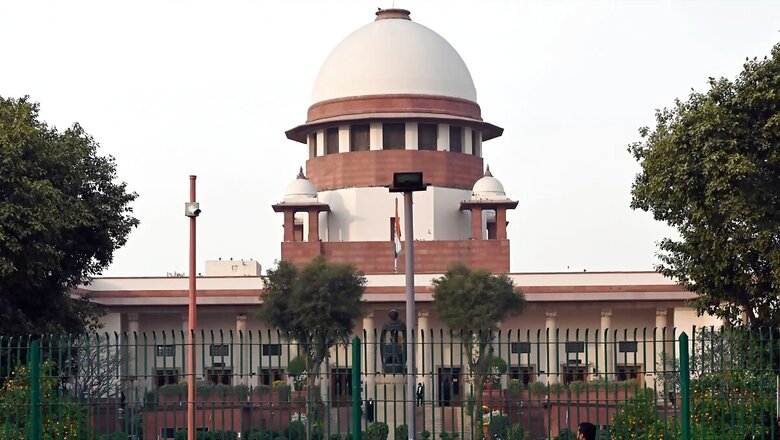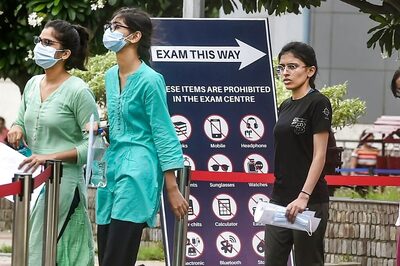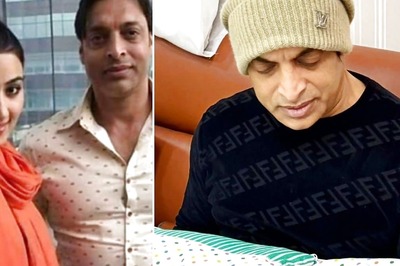
views
The Centre on Thursday filed an affidavit before the Supreme Court, saying it cannot criminalise marital rape in the country because it is more of a social issue and has a direct bearing on the society. It said while a man does not have the right to violate the wife’s consent, seeing it as “rape” would be too “harsh” and “disproportionate”.
“This is more so since the issues involved have a direct bearing on the society in general and is a part of Concurrent List of the Seventh Schedule to the Constitution of India,” the Centre told the SC.
In its affidavit, the Centre stated: “…Given the nature of the nature of the marital institution in our social-legal milieu, if the legislature is of the view that, for preservation of the marital institution, the impugned Exception should be retained, it is submitted that it would not be appropriate for this Hon’ble Court to strike down the Exception.”
The SC is seized of petitions raising the vexed legal question of whether a husband should enjoy immunity from prosecution for the offence of rape if he forces his wife, who is not a minor, to have sex.
Backing the existing rape laws, the Centre said Parliament has provided for “other remedies” to protect the right of consent of a married woman and said the issue cannot be decided without “proper consultative process”.
“Further, it is submitted that a husband certainly does not have any fundamental right to violate the consent of the wife, however, attracting the crime in the nature ‘rape’ as recognised in India to the institution of marriage can be arguably considered to be excessively harsh and, therefore, disproportionate…” it said.
It further told the court that in the fast-growing and ever changing social and family structure, misuse of the amended provisions can also not be ruled out as it will be difficult and challenging for a person to prove whether consent was there or not. It said if sexual acts by a man with his own wife is made punishable as “rape”, it may severely impact the conjugal relationship and lead to serious disturbances in the institution of marriage.
The central government filed the affidavit, opposing petitions that have called for the criminalisation of marital rape. The matter reached the top court in September after the Delhi High Court in 2022 delivered a split verdict on whether marital rape should be a criminal offence.
Under the exception clause of Section 375 of the Indian Penal Code (IPC), now repealed and replaced by the Bharatiya Nyaya Sanhita (BNS), sexual intercourse or sexual acts by a man with his wife, the wife not being minor, is not rape. Even under the new law, Exception 2 to Section 63 (rape) says “sexual intercourse or sexual acts by a man with his own wife, the wife not being under eighteen years of age, is not rape”.
“Furthermore, it is submitted that striking down the exception 2 of section 375 of IPC on the ground of its constitutional validity will have a far-reaching effect on the institution of marriage if sexual intercourse or sexual acts by a man with his own wife is made punishable as ‘rape’,” the affidavit said.
A bench headed by Chief Justice DY Chandrachud is seized of various pleas on the issue. On January 16, the apex court sought the Centre’s response on a clutch of petitions assailing the IPC provision, which provides protection to a husband against prosecution for forcible sexual intercourse if the wife is an adult. Later, it also issued a notice to the Centre on a similar plea challenging the BNS provision on the issue.
(With PTI inputs)




















Comments
0 comment